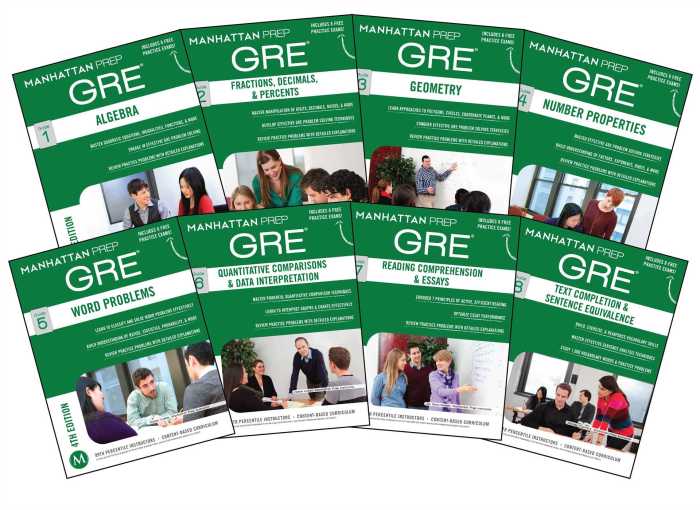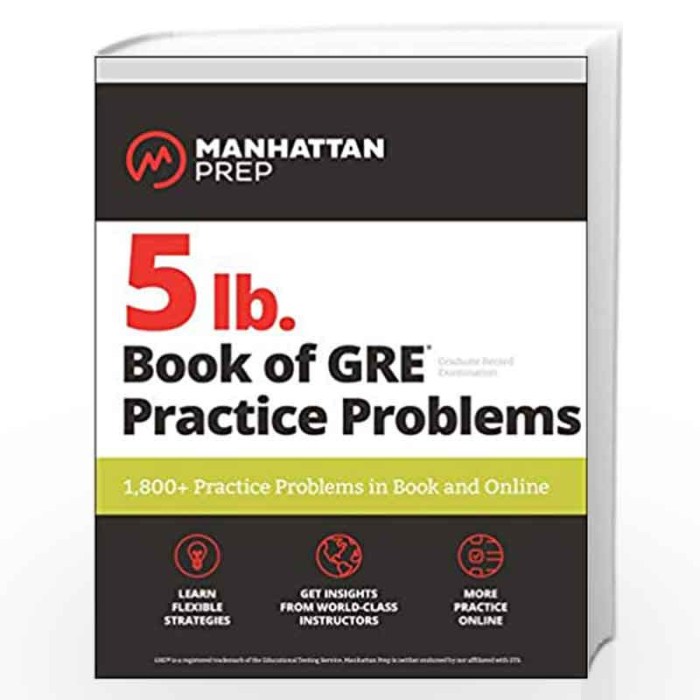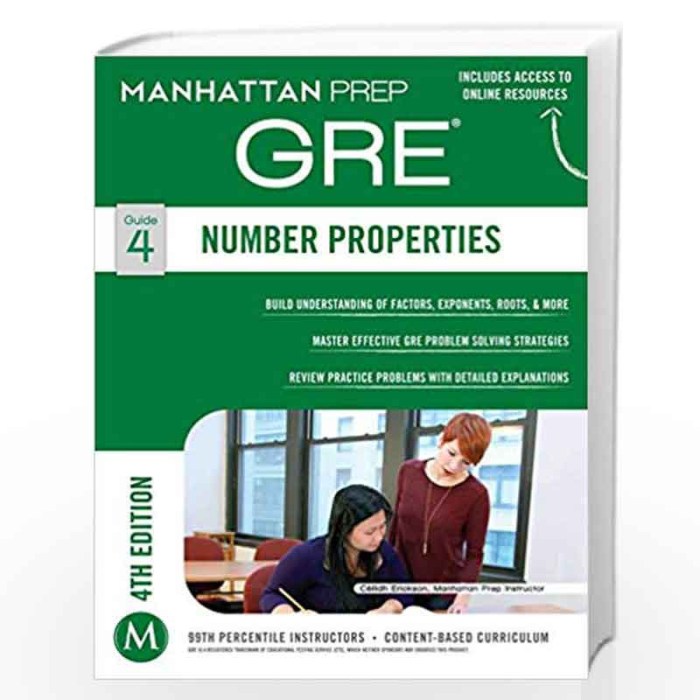Manhattan Prep 1000 GRE Words introduces an exceptional vocabulary-building resource, guiding you on an enthralling journey to conquer the GRE verbal section. This meticulously curated list of 1000 essential words will equip you with the linguistic prowess to excel in your graduate school endeavors.
Through effective memorization techniques, contextual understanding, and in-depth analysis, this comprehensive guide empowers you to master the vocabulary that defines academic and professional success.
Word List Overview
The “Manhattan Prep 1000 GRE Words” list is a comprehensive collection of essential vocabulary for the Graduate Record Examination (GRE).
The words in this list were carefully selected based on their frequency of appearance on the GRE and their importance in academic and professional contexts.
Selection Criteria
- Frequency of Appearance:Words were chosen based on their frequency of occurrence on actual GRE exams.
- Academic and Professional Relevance:Words were selected for their relevance to graduate-level studies and professional communication.
- Discriminating Power:Words were chosen that effectively distinguish between high-scoring and low-scoring test takers.
Vocabulary Building Strategies
Mastering the Manhattan Prep 1000 GRE Words list requires effective memorization and retention techniques. Spaced repetition and active recall are crucial strategies to enhance your vocabulary.
Spaced Repetition
Spaced repetition involves reviewing the words at increasing intervals, allowing you to strengthen your memory over time. Use flashcards or spaced repetition software to gradually increase the time between reviews, reinforcing the words in your long-term memory.
Active Recall
Active recall involves actively trying to recall the words without looking at the list. This can be done through writing practice, flashcards, or discussions with a study partner. By actively retrieving the words from your memory, you improve your retention and understanding.
Contextual Understanding

Context plays a pivotal role in determining the meaning and usage of words. Words can take on different shades of meaning depending on the surrounding context, including the sentence, paragraph, and overall discourse.
Understanding contextual cues is crucial for effective communication and comprehension. It helps us decipher the intended meaning of words, even if they are unfamiliar or ambiguous on their own.
Examples of Contextual Understanding
- Ambiguous Words:Words like “bank” can have multiple meanings (e.g., a financial institution or the side of a river). Context clarifies which meaning is intended.
- Figurative Language:Idioms, metaphors, and similes rely on context to convey their intended meaning. For example, “She was over the moon” doesn’t literally mean she was on the moon.
- Technical Terms:Specialized words used in specific fields (e.g., “torque” in engineering) require context to understand their precise meaning within that domain.
- Cultural Context:Words and phrases may have different meanings or connotations in different cultures. For instance, the phrase “bless you” in English is a polite response to a sneeze, while in other cultures, it may be used as a religious expression.
Synonym and Antonym Relationships

Expanding your vocabulary involves not just memorizing new words but also understanding the relationships between them. Synonyms and antonyms are two crucial types of word relationships that can significantly enhance your vocabulary.
Synonyms are words with similar or identical meanings, while antonyms are words with opposite meanings. Identifying and understanding these relationships can help you comprehend the nuances of language and express yourself more precisely.
Synonyms
Understanding synonyms allows you to expand your vocabulary by providing you with alternative words to convey the same idea. For example, instead of repeatedly using the word “happy,” you can use synonyms like “joyful,” “elated,” or “jubilant” to add variety to your writing or speech.
Antonyms
Antonyms, on the other hand, help you grasp the full spectrum of meaning by providing contrasting words. By understanding the antonym of a word, you can better comprehend its opposite and gain a more comprehensive understanding of its usage. For instance, knowing that the antonym of “hot” is “cold” helps you grasp the range of temperatures.
Word Root Analysis

Understanding word roots, the basic components of words, offers a powerful tool for expanding your vocabulary. By breaking down words into their root elements, you gain insights into their meanings and relationships. This analysis empowers you to decipher unfamiliar words, recognize patterns, and effortlessly enhance your vocabulary.
Benefits of Word Root Analysis
-
-*Unveiling Word Meanings
Roots hold the essence of word meanings, providing a direct path to understanding the core concepts behind words.
-*Vocabulary Expansion
Analyzing roots allows you to connect new words to familiar ones, creating a web of interconnected meanings that facilitate memorization.
The Manhattan Prep 1000 GRE Words list is a valuable resource for anyone preparing for the GRE. It includes a comprehensive list of high-frequency words that are likely to appear on the exam. For further reading and to delve into the intricacies of the legal system, I recommend exploring just mercy summary chapter 10 . This in-depth analysis provides insights into the challenges faced by the justice system and its impact on individuals.
Returning to our vocabulary focus, the Manhattan Prep 1000 GRE Words list serves as an excellent foundation for expanding your vocabulary and enhancing your GRE preparation.
-*Pattern Recognition
Roots reveal patterns in word formation, enabling you to identify similar words with shared meanings or functions.
Examples of Root Analysis in Vocabulary Expansion
-
-*”Chron-” (time)
Understanding the root “chron” helps you decipher words like “chronology” (time sequence), “chronic” (long-lasting), and “chronometer” (time-measuring device).
-*”Geo-” (earth)
Analyzing the root “geo” allows you to grasp the meanings of words like “geology” (study of the earth), “geography” (description of the earth), and “geophysics” (study of the earth’s physical properties).
-*”Bio-” (life)
The root “bio” provides a foundation for understanding words like “biology” (study of life), “biosphere” (region of life on earth), and “biotechnology” (application of biological principles).
Usage in GRE Exam

The GRE tests your vocabulary in various ways. One common method is through questions that assess your understanding of words from the Manhattan Prep 1000 GRE Words list.
These words may appear in:
- Sentence Equivalence: Questions that require you to identify two sentences that express the same meaning. The words from the list may appear in either sentence.
- Text Completion: Questions that present a passage with one or more missing words. The words from the list may be among the options to fill in the blanks.
- Reading Comprehension: Questions that test your understanding of a passage. The words from the list may appear in the passage itself or in the questions related to it.
To answer these questions effectively, it’s crucial to:
- Master the meanings: Thoroughly understand the definitions and nuances of the words from the list.
- Practice contextually: Engage with the words in various contexts, such as practice questions or real-world scenarios, to develop a deeper comprehension.
- Identify key features: Pay attention to the word’s part of speech, root, prefixes, and suffixes to deduce its meaning and usage.
Practical Applications: Manhattan Prep 1000 Gre Words

Mastering the 1000 GRE words can significantly enhance communication skills in academic and professional settings. By incorporating these words into your vocabulary, you gain the ability to express yourself more precisely, persuasively, and effectively.
In academic writing, the use of sophisticated vocabulary demonstrates a deep understanding of the subject matter and enhances the credibility of your arguments. By employing words like “discourse,” “paradigm,” and “heuristic,” you convey a level of expertise that sets you apart from others.
Effective Writing
- Using words like “delineate” and “explicate” allows for clear and concise explanations.
- Employing words like “perspicacious” and “erudite” adds depth and nuance to your writing.
- Incorporating words like “conundrum” and “enigma” creates intrigue and encourages further exploration.
Effective Speaking, Manhattan prep 1000 gre words
- Using words like “articulate” and “eloquent” enhances your ability to convey ideas clearly and persuasively.
- Employing words like “perspicacious” and “discerning” demonstrates your analytical skills and critical thinking abilities.
li>Incorporating words like “paradigm” and “discourse” adds depth and complexity to your presentations.
Q&A
What is the significance of the Manhattan Prep 1000 GRE Words list?
The list comprises 1000 essential words frequently encountered on the GRE, meticulously selected to maximize your vocabulary growth.
How were the words on the list chosen?
The words were carefully selected based on their frequency of appearance on the GRE and their importance in academic and professional contexts.
What are some effective techniques for memorizing the words on the list?
Spaced repetition and active recall are highly effective techniques for memorization. Regularly reviewing the words and actively recalling them from memory strengthens your retention.